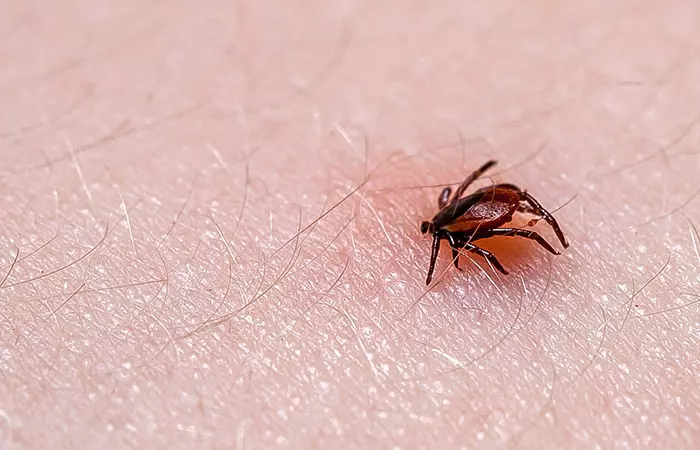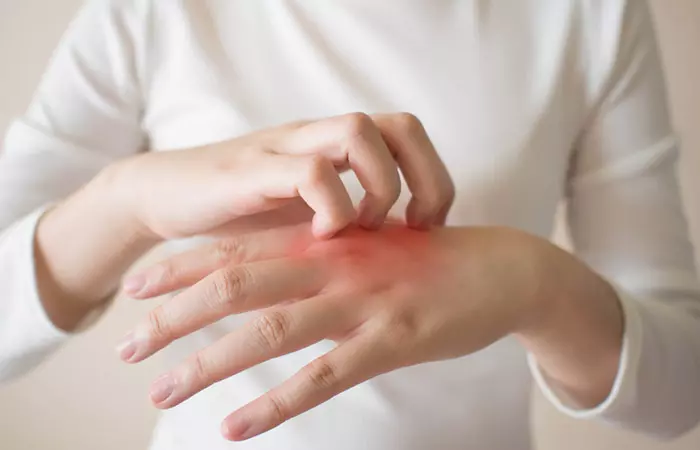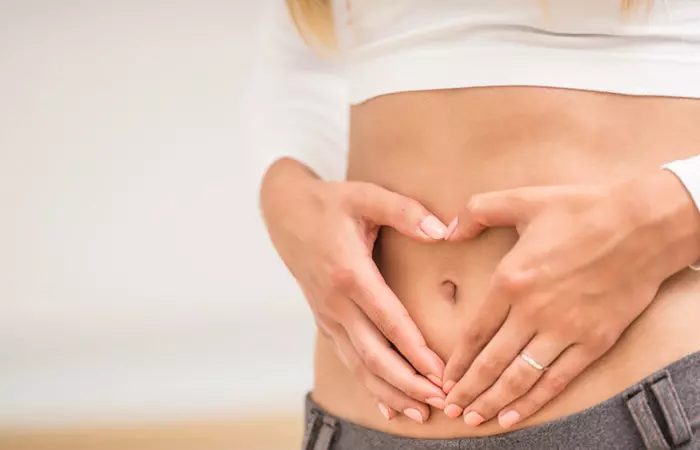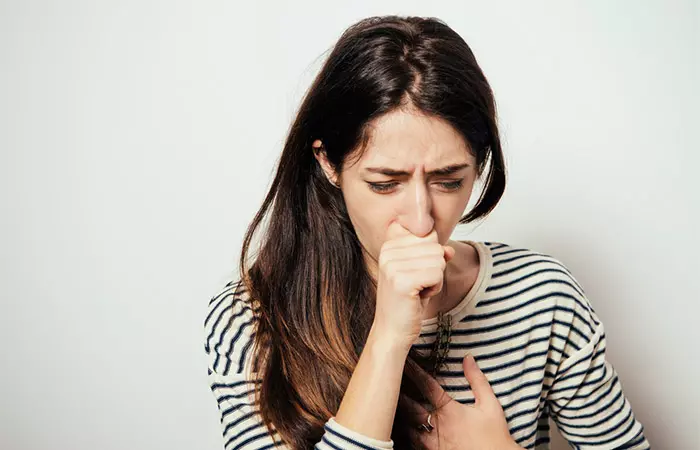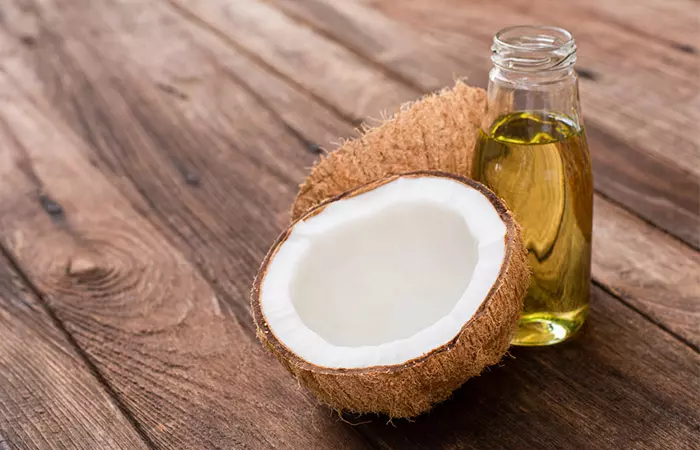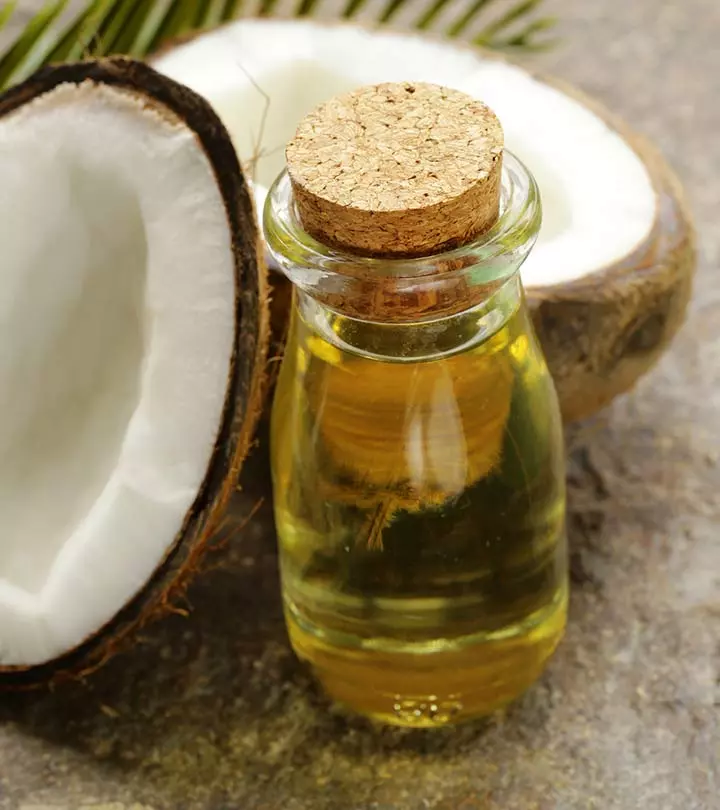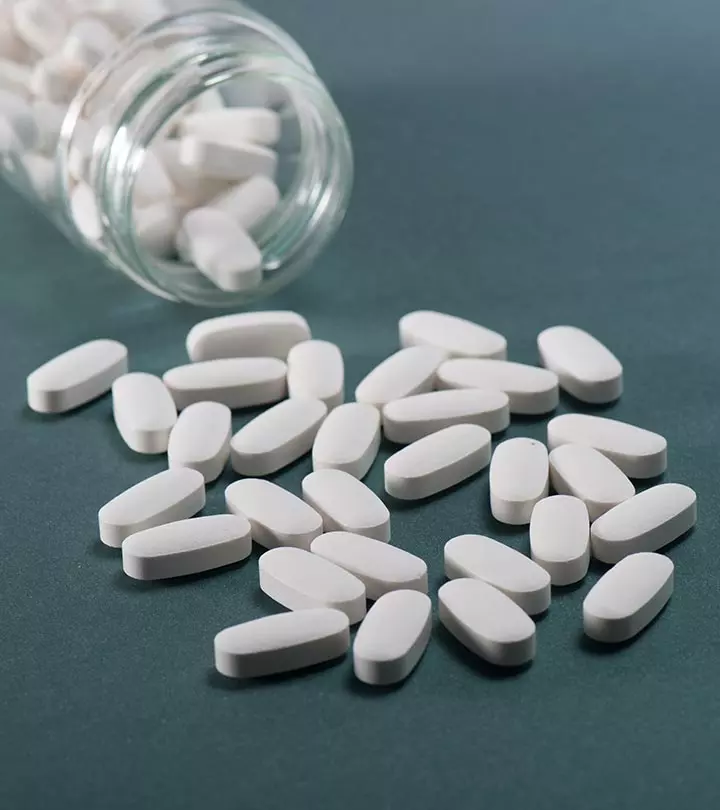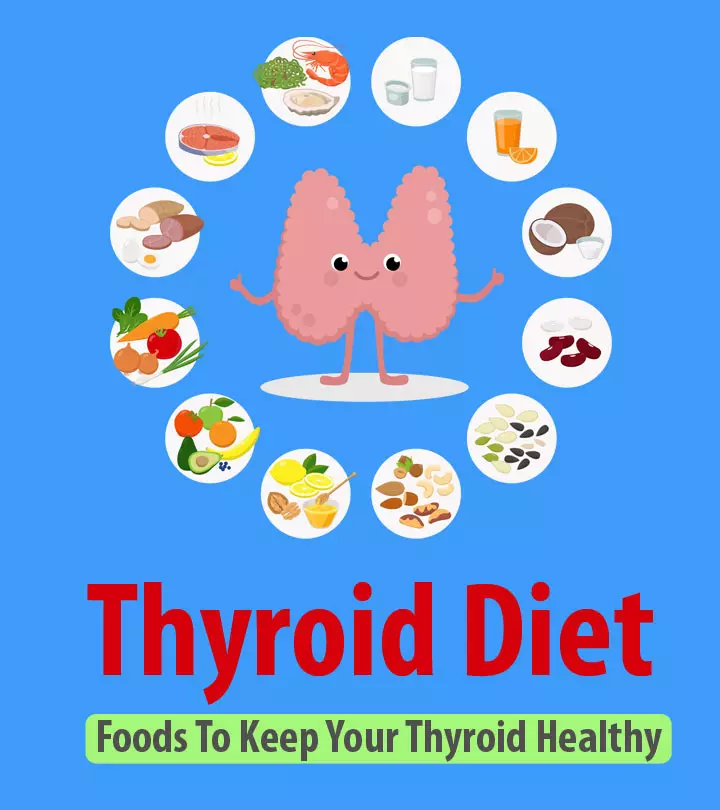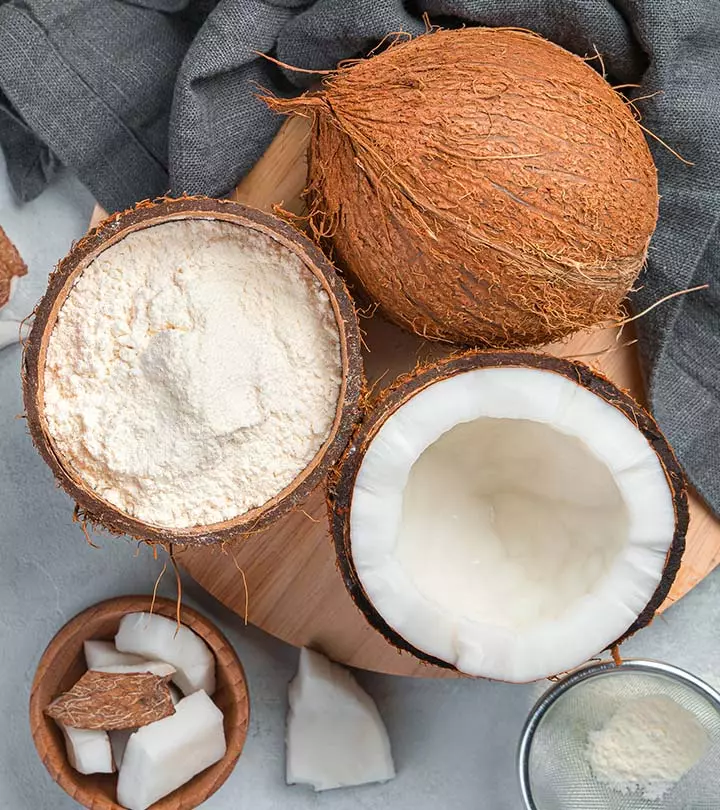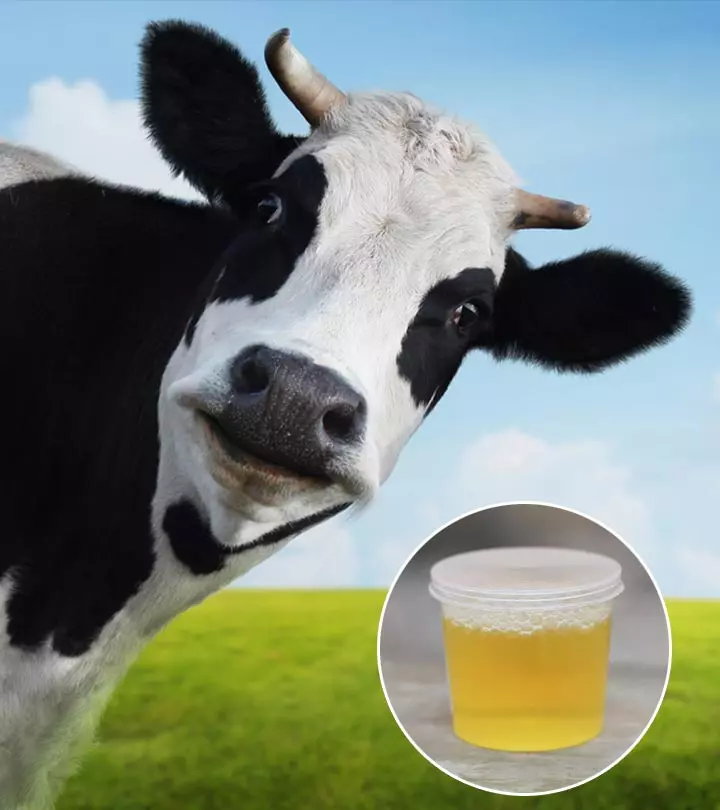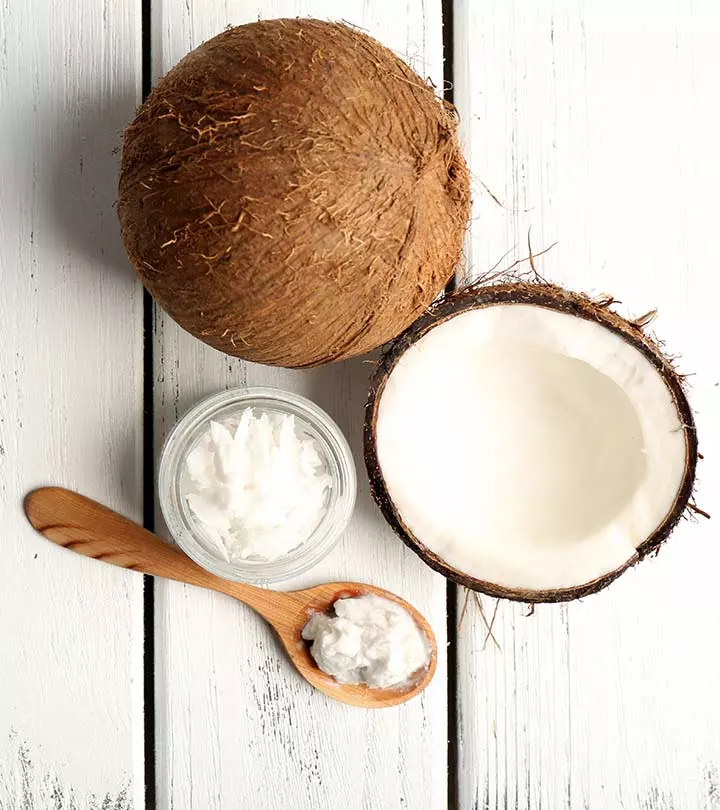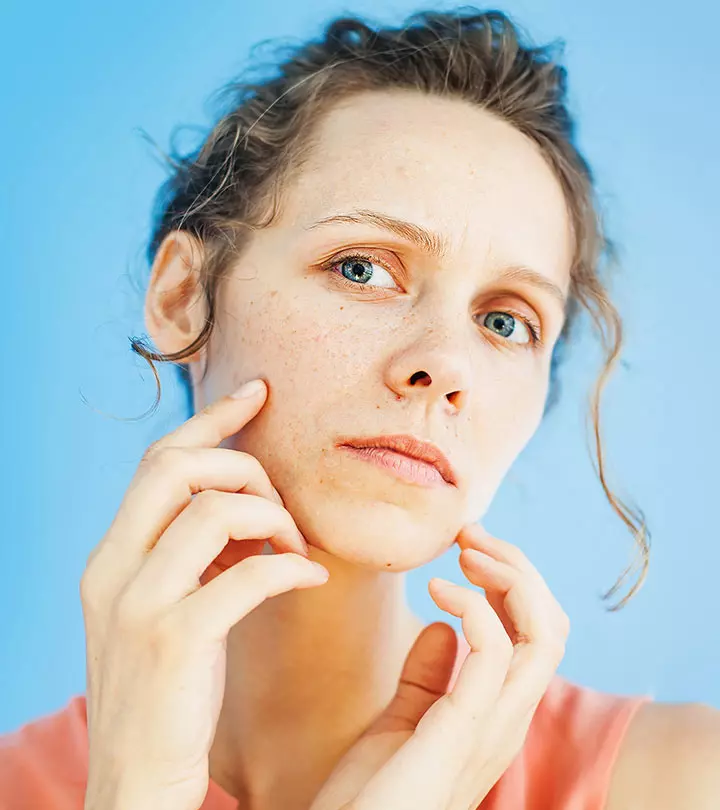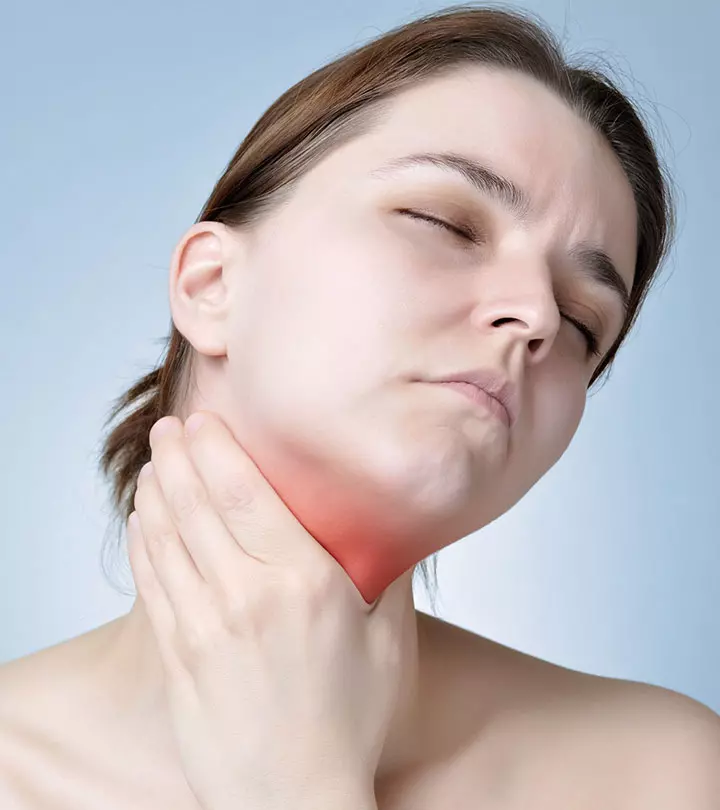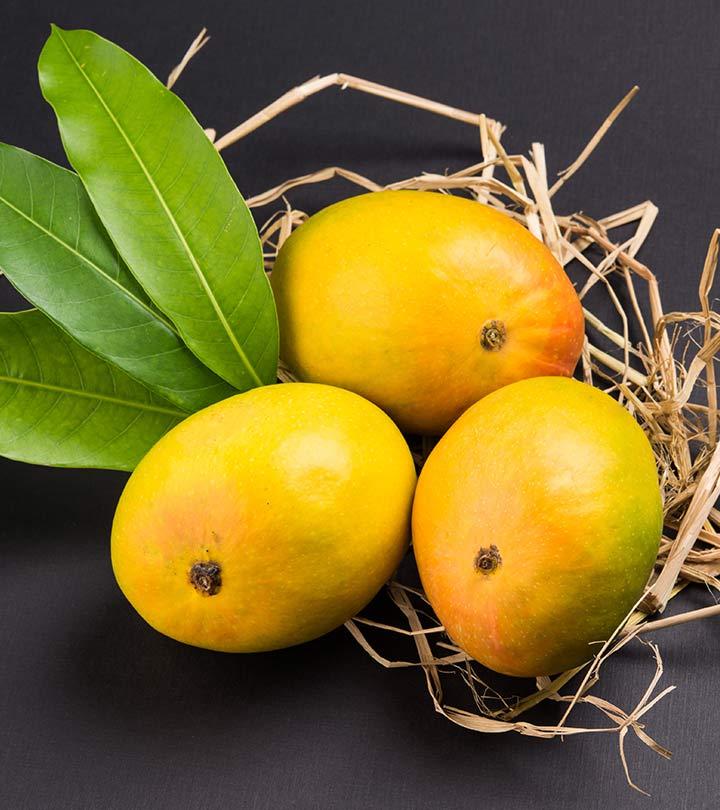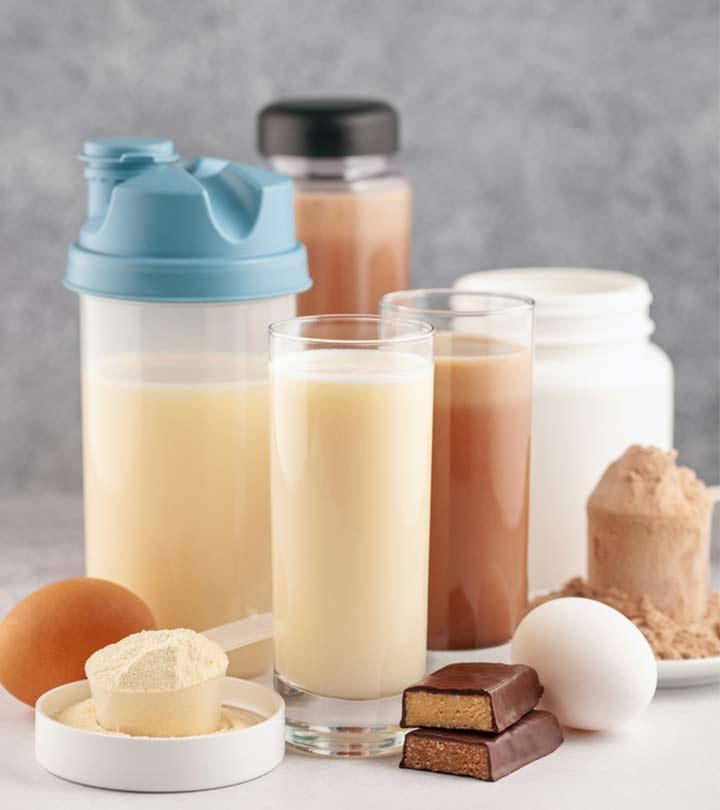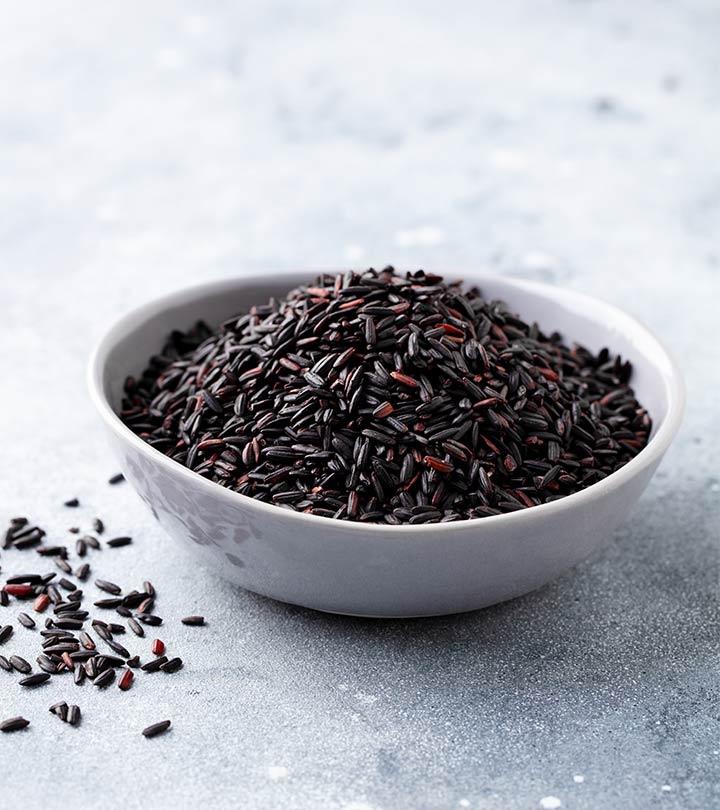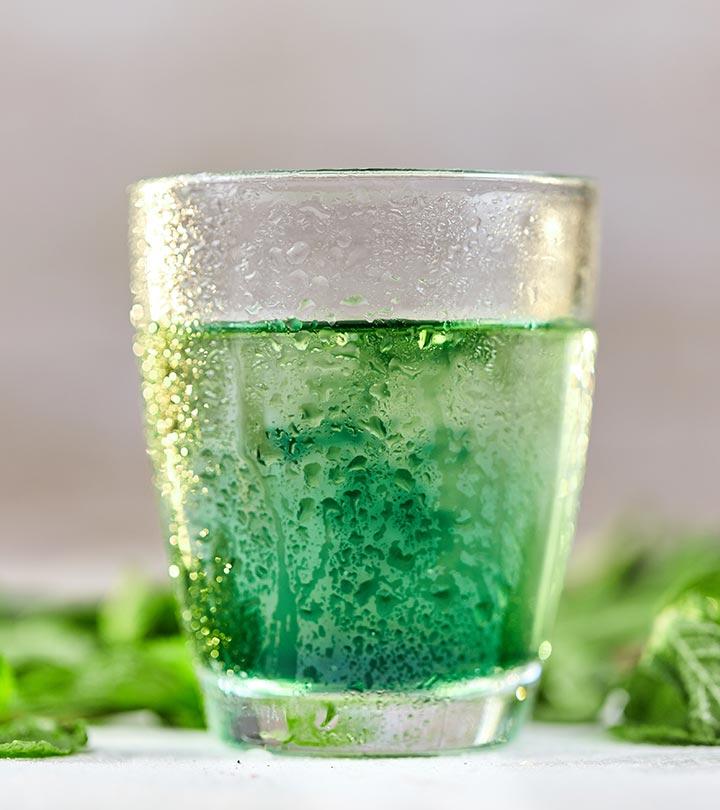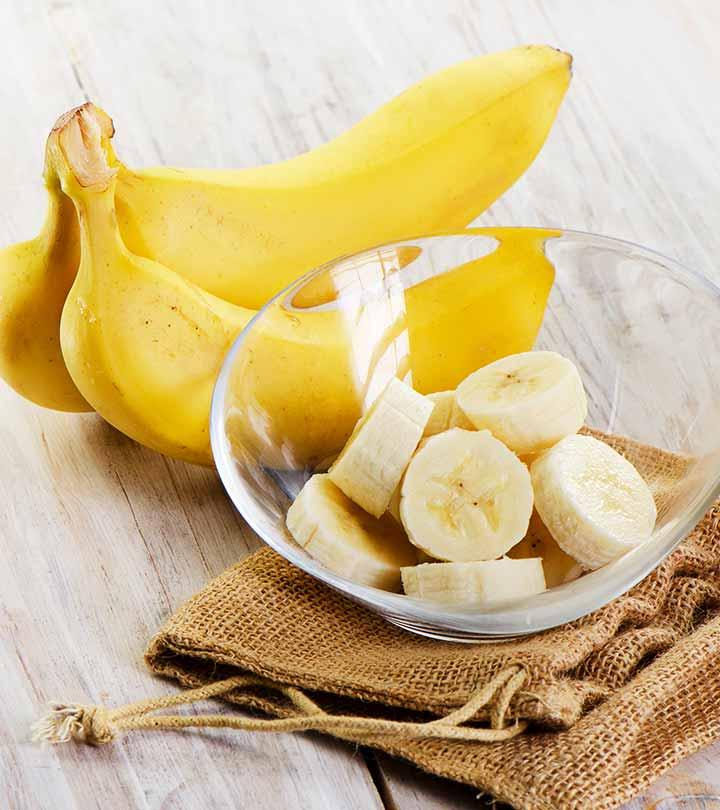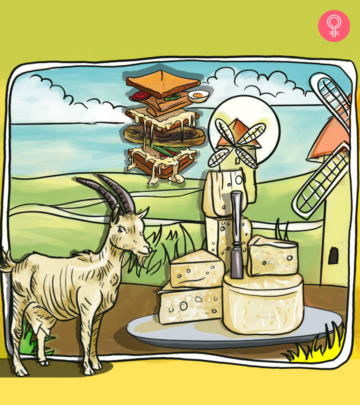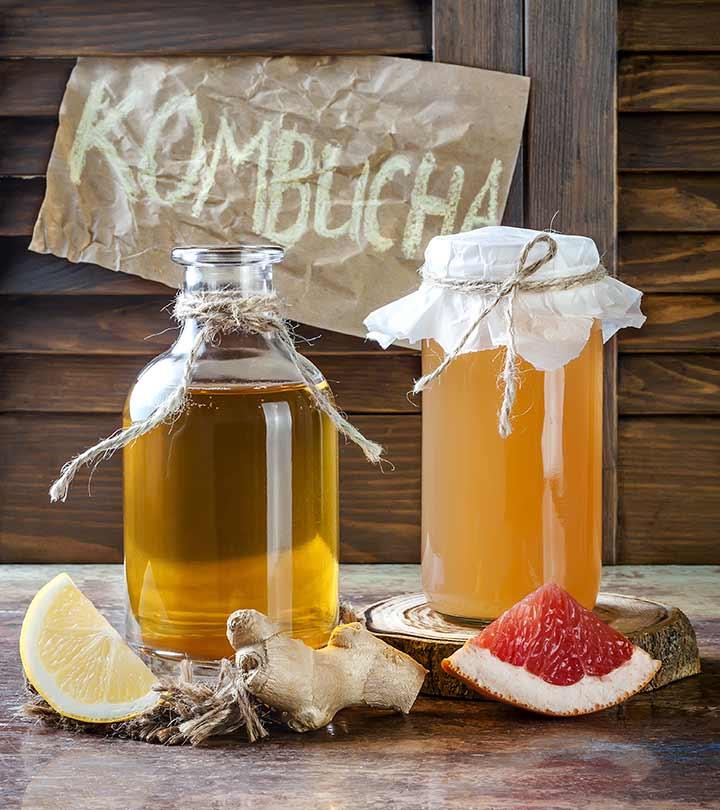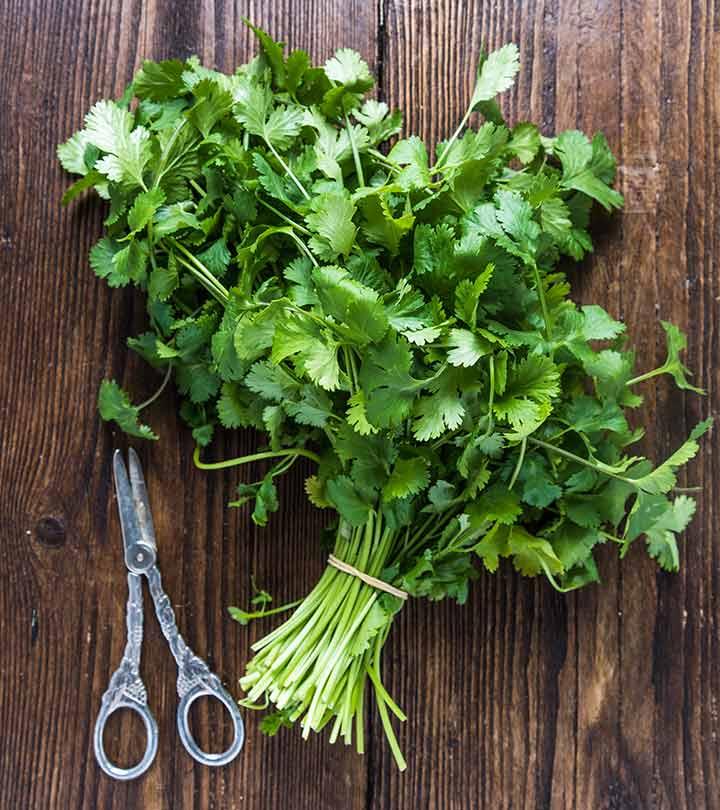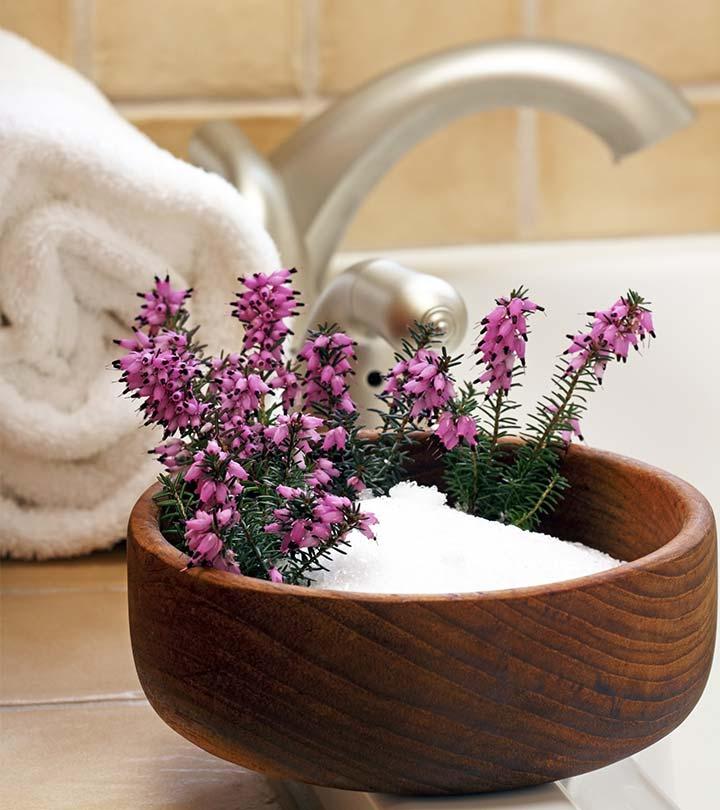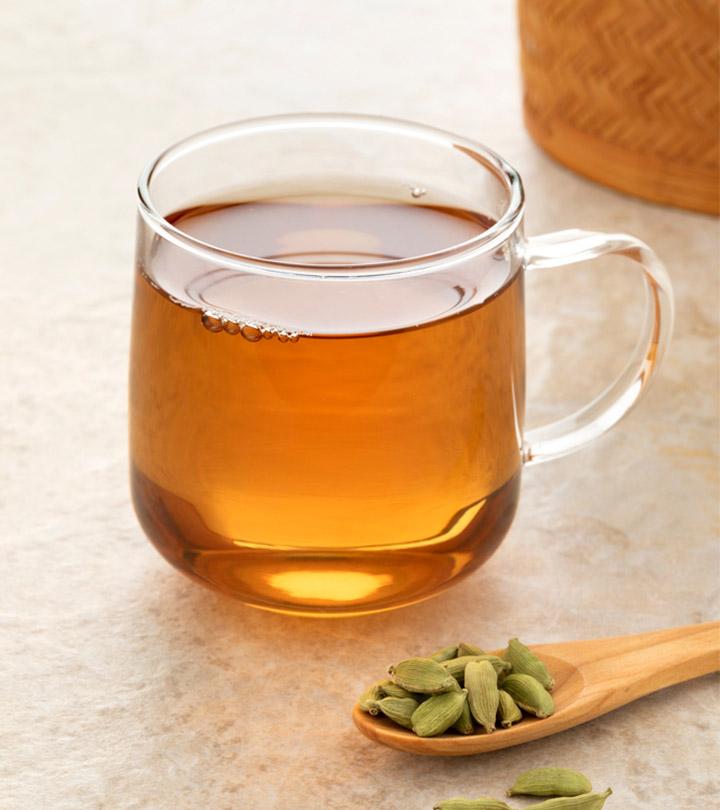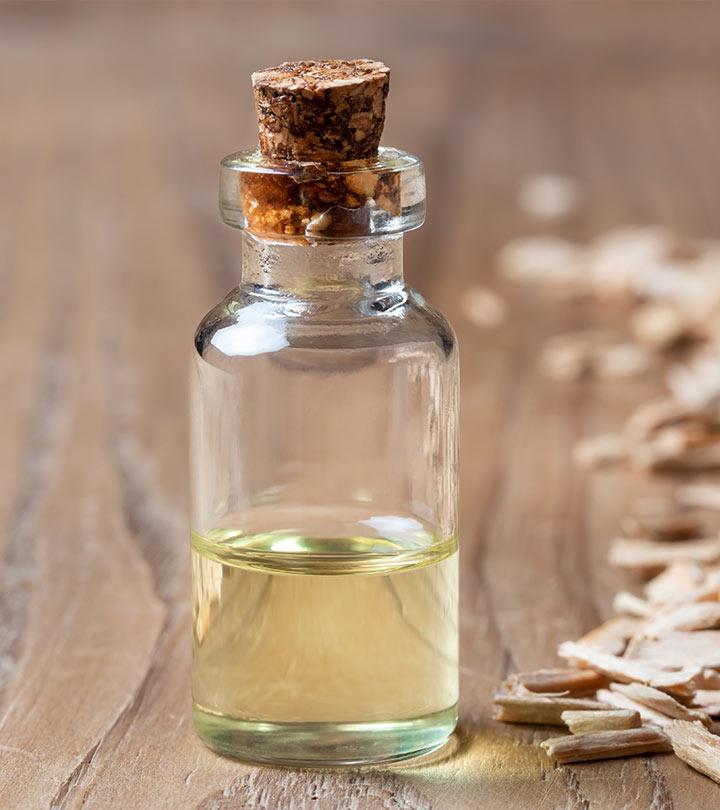7 Monolaurin Benefits You Need To Know About
A specially-formulated substance that improves your digestion and boosts your immunity
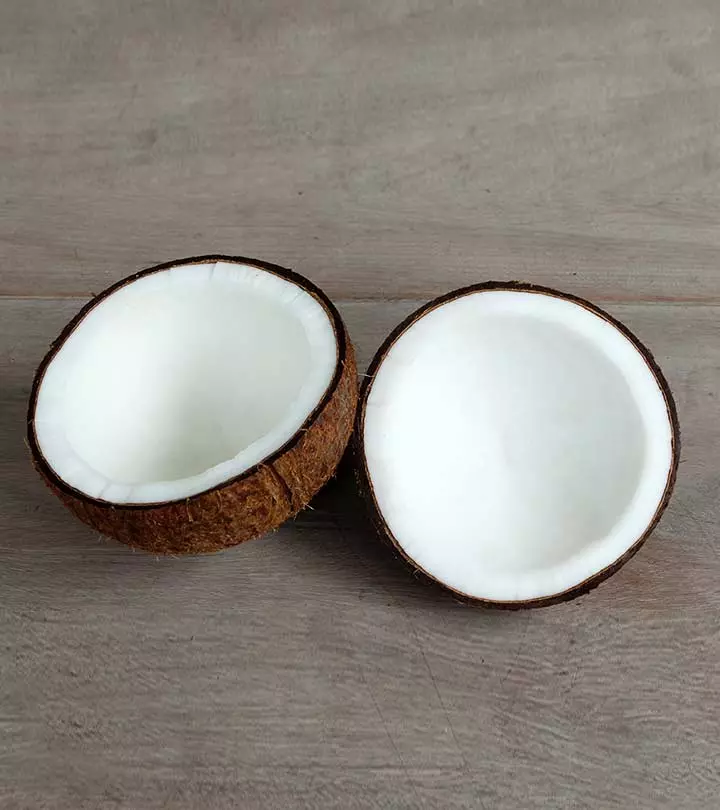
Image: Shutterstock
Initially available as a nutritional formulation in the 1960s, monolaurin is globally available as a dietary supplement today. Research suggests that monolaurin may exhibit potential antimicrobial properties that may be essential in fighting certain diseases (1). Monolaurin is used commonly in cosmetics and food production as well. In this article, we talk about how monolaurin benefits our health and how safe it is for you to consume.
 Know Your Ingredient: Monolaurin
Know Your Ingredient: MonolaurinWhat Is It?
A chemical compound obtained from the lauric acid present in coconut and palm oil through hydrolysis, centrifugation, and distillation.
What Are Its Benefits?
It may help protect against various bacteria, viruses, and fungi as well as Lyme disease and skin infections, and promote digestive and immune system health.
Who Can Consume It?
Anyone can consume it except for people with serious medical conditions and coconut allergies.
How Often?
It may be taken daily in moderation.
Caution
It has not been proven safe for treating medical ailments. Consult your doctor before use.
In This Article
What Is Monolaurin?
Also known as glycerol monolaurate, monolaurin is a chemical compound extracted from lauric acid which is a saturated fat found in coconut and palm oil. Surprisingly, lauric acid is also found naturally in a mother’s breast milk. Other than the above sources, lauric acid is also found in foods such as cocoa butter. Due to its emulsifying properties, it is widely used in the pharmaceutical, food, and cosmetics industries (1). Monolaurin is made through the processes of hydrolysis, centrifugation, and distillation.
The next section explores the different ways monolaurin is used today.
Uses & Effectiveness
Monolaurin may have several suggested uses. Currently, monolaurin is used in the food production, cosmetic, and manufacturing industries in the following items.
- Ice cream
- Margarine
- Pasta
- Cosmetics
- Insecticides
- Detergents
- Deodorants
Going further, let us take a deeper look at the different benefits of monolaurin.
7 Potential Health Benefits Of Monolaurin
Monolaurin is a natural supplement that has been known for its potential benefits in promoting skin health. With its antiviral, antimicrobial, and antifungal properties, monolaurin has been found to be effective in combating a variety of skin conditions. While the studies on monolaurin are limited, a few laboratory and test-tube studies have shown promising results. Research suggests that monolaurin benefits us in the following ways:
1. May Help Fight Against Various Strains Of Bacteria – Current research indicates that monolaurin has shown antibacterial effects against a host of bacteria. According to a 2013 study, researchers found that monolaurin may be effective in fighting the antibiotic-resistant Staphylococcus aureus which commonly causes skin infections (2). Other studies indicate that monolaurin may be effective against other bacterial strains such as E.coli and B.subtilis which cause diarrhea, and pneumonia (3).
2. May Fight Against Viral Diseases – Research suggests that monolaurin may play a role against viruses such as SARS-CoV-2 (4). In-vitro studies show that monolaurin breaks down the outer lipid membrane of viruses, which results in the disintegration of the virus (5). A 2015 study showed that administering daily doses of monolaurin gel could reduce the primates’ risk of contracting Simian Immunodeficiency Virus (SIV) (6).
 Did You Know?
Did You Know?HIV, measles, herpes simplex-1, vesicular stomatitis, visna virus, and cytomegalovirus are some of the viruses that have been found to be inactivated by monolaurin (14).
3. May Inhibit The Growth Of Fungi – Monolaurin reportedly inhibits the effects of fungi such as Candida albicans (7). A yeast found in the human body, Candida albicans can be life-threatening under certain situations (8).
4. May Enhance Your Immune System– Monolaurin may play an active role in stimulating the immune system. Studies have reported that monolaurin may enhance the immune system by regulating the production of T-lymphocytes and the growth of immune cells. These are white blood cells essential for the immune system functioning (1).
5. May Help Fight Lyme Disease– A 2015 in-vitro study tested the effect of monolaurin against Borellia garinii, the bacteria that causes Lyme disease. The study revealed that monolaurin along with baicalein, a type of polyphenol, was very effective in fighting the bacteria (9).
6. May Play A Role Against Skin Infections– Studies report that monolaurin may be powerful against certain bacteria that cause skin infections such as atopic dermatitis. A laboratory study was conducted to see the effect of monolaurin and conventional antibiotics against microbes from skin infections. The study found that monolaurin was highly effective in fighting these bacteria (10).
7. May Benefit Your Digestive Health– Monolaurin may be effective in inactivating bacteria that cause stomach infections. A study was conducted to see the effect of monoglyceride on H. pylori, a bacterium that infects the stomach. Out of all the monoglycerides, monolaurin showed the highest antibacterial activity against H. pylori (11).
While laboratory studies are promising, studies in clinical settings need to be conducted to understand the benefits of monolaurin. The next section explores the potential side effects of monolaurin.
Side Effects Of Monolaurin
While monolaurin is mostly considered safe for food consumption, it is not yet approved for use in the treatment of medical ailments (12). Since the known risk currently associated with monolaurin is coconut allergy, people with coconut allergy must stay away from monolaurin made from coconut products.
To be on the safer side, pregnant women, lactating mothers, and people diagnosed with serious medical conditions must consult a doctor before consuming monolaurin. Keep reading to find out the different ways to consume monolaurin.
How To Consume Monolaurin
Monolaurin is commonly taken as a dietary supplement and has been classified as “Generally Recognized as Safe” by the FDA. It can be found in your local grocery store, medical store, or online stores. In addition, the body may convert lauric acid into monolaurin, with coconut oil deemed as the richest source of lauric acid (12). You may include the following items as a source of monolaurin in your diet:
- Coconut oil
- Raw coconut cream
- Dietary supplements
- Fresh coconut- shredded
- Fresh coconut milk
- Coconut pudding
- Goat and cow milk
- Canned coconut cream
- Monolaurin powder
- Human breast milk
- Coconut meat
If you are taking monolaurin supplements for the first time, it is recommended that you follow the directions given on the label. Since monolaurin dosage may likely be influenced by age and medical conditions, it is recommended to consult a physician for the suitable dosage.
 Quick Tip
Quick TipInfographic: 5 Ways Monolaurin Can Improve Your Health
Monolaurin is a chemical compound that can protect you from many skin infections and diseases. Whether you add it to your diet or use a monolaurin-infused skin care product, you are sure to benefit from it. Check out the infographic below to know why this ingredient is a must-have.

Illustration: StyleCraze Design Team
Monolaurin is a chemical compound extracted from lauric acid. This dietary supplement is found abundantly in breast milk, coconut oil, and fresh shredded coconut. The many benefits of monolaurin can be attributed to its antimicrobial properties. The use of this chemical compound may fight against different bacterial strains, inhibit the growth of fungi, enhances immune health, acts against skin infections, and improves digestive health. However, it may cause allergies in people who are allergic to coconuts. In addition, consult your doctor before consuming if you have any medical conditions. Hence, limit its usage and consult your doctor in case of emergencies.
Frequently Asked Questions
Is monolaurin anti-inflammatory?
Yes. Monolaurin reduces inflammation by decreasing macrophage activity and pro-inflammatory cytokine production (13).
How long does it take monolaurin to work?
It may take up to 2 weeks to see the effects of monolaurin on the body.
Can you take monolaurin on an empty stomach?
It is recommended to take monolaurin along with meals.
Does monolaurin help with weight loss?
No. There is no scientific evidence that suggests monolaurin helps with weight loss.
Can you take lysine and monolaurin together?
Yes. The combination of lysine and monolaurin may help boost immune function.
If you are looking to boost your immunity naturally, monolaurin could be the solution. Understand from the video below the benefits monolaurin has on your immune system.
Key Takeaways
- Monolaurin is a chemical compound found in coconut oil, palm oil, and human breast milk.
- This compound has antimicrobial properties that help to fight all types of infections and promote immunity.
- You can start including coconut oil and raw coconut cream in your diet to increase your monolaurin intake.
- You can find this FDA-recognized dietary supplement at your local grocery store or pharmacy.
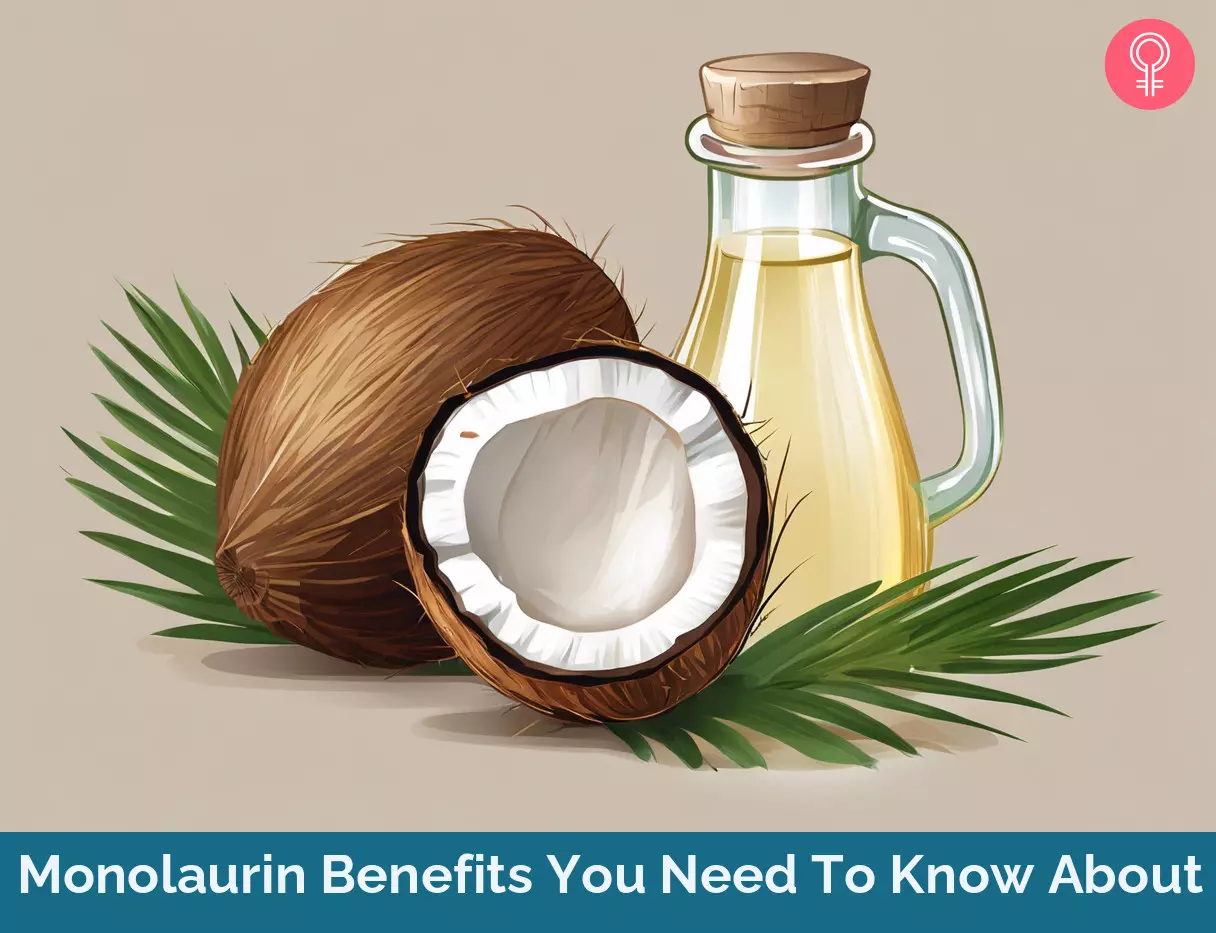
Image: Stable Diffusion/StyleCraze Design Team
References
Articles on StyleCraze are backed by verified information from peer-reviewed and academic research papers, reputed organizations, research institutions, and medical associations to ensure accuracy and relevance. Read our editorial policy to learn more.
- Bioactive monolaurin as an antimicrobial and its potential to improve the immune system and against COVID-19: a review
https://www.myfoodresearch.com/uploads/8/4/8/5/84855864/_67__fr-2020-324_subroto.pdf - In vitro and in vivo effects of two coconut oils in comparison to monolaurin on Staphylococcus aureus: rodent studies
https://pubmed.ncbi.nlm.nih.gov/23767861/ - Antibacterial interactions of monolaurin with commonly used antimicrobials and food components
https://pubmed.ncbi.nlm.nih.gov/19895490/ - Understanding protection from SARS-CoV-2 using metabolomics
https://pubmed.ncbi.nlm.nih.gov/34226622/ - Potential of Complementary and Alternative Medicine in Preventive Management of Novel H1N1 Flu (Swine Flu) Pandemic: Thwarting Potential Disasters in the Bud
https://www.ncbi.nlm.nih.gov/labs/pmc/articles/PMC2957173/ - Glycerol Monolaurate Microbicide Protection against Repeat High-Dose SIV Vaginal Challenge
https://www.ncbi.nlm.nih.gov/labs/pmc/articles/PMC4461171/ - In vitro evaluation of antifungal activity of monolaurin against Candida albicans biofilms
https://www.ncbi.nlm.nih.gov/labs/pmc/articles/PMC4924139/ - Candida albicans pathogenicity mechanisms
https://www.ncbi.nlm.nih.gov/labs/pmc/articles/PMC3654610/ - In vitro evaluation of antibacterial activity of phytochemicals and micronutrients against Borrelia burgdorferi and Borrelia garinii
https://www.ncbi.nlm.nih.gov/labs/pmc/articles/PMC4738477/ - Novel antibacterial activity of monolaurin compared with conventional antibiotics against organisms from skin infections: an in vitro study
https://www.researchgate.net/publication/5880283_Novel_antibacterial_activity_of_monolaurin_compared_with_conventional_antibiotics_against_organisms_from_skin_infections_an_in_vitro_study - Bactericidal effects of fatty acids and monoglycerides on Helicobacter pylori
https://pubmed.ncbi.nlm.nih.gov/12385681/ - The Clinical Use of Monolaurin as a Dietary Supplement: A Review of the Literature
https://www.ncbi.nlm.nih.gov/labs/pmc/articles/PMC7486475/ - The Effect of α-Monolaurin and Butyrate Supplementation on Broiler Performance and Gut Health in the Absence and Presence of the Antibiotic Growth Promoter Zinc Bacitracin
https://www.ncbi.nlm.nih.gov/pmc/articles/PMC8228722/ - A Review of Monolaurin and Lauric Acid: Natural Virucidal and Bactericidal Agents
https://selfhacked.com/app/uploads/2017/12/natural-bactericidal.pdf/
Read full bio of Mayuri Aavula
Read full bio of Ravi Teja Tadimalla
Read full bio of Payal Karnik





